Nuntius Inimici - Inimician Broadcasting Corporation
-

Imperial Official In North Diessen 'Defenestrated' - reports
Reitzmag Talks Proceeding "with extreme difficulty"
Defence Office Announces Inimician Production of F-35 Fighter Jet

Het Goor, North Diessen, 26/2/2022 -- Commander of the Imperial Guard Investigation Unit Albert Rosenfield, pictured, is reported to have been violently expulsed from the Presidential Palace in North Diessen, following the refusal of Inimician authorities to extradite a wanted terror suspect to its north neighbour. Nuntius Inimici sources claim seeing Rosenfield "dumped" from a second-storey window somewhere inside the Confederal government compound.
Rosenfield has been Inimicus's Special Envoy to the Confederacy of North Diessen since Imperial Armed Forces intervened in the Reuland Rebellion late last year. The German-speaking state illegally defected from the North Diessenian Confederacy but was swiftly brought back under central control after the Inimician intervention. Ties between Inimicus and North Diessen have since developed much more closely, with joint investment in large infrastructure projects such as the Artabanos Canal.
The last week, however, saw renewed tensions between the historic rivals over the extradition of a wanted terror suspect, who has reportedly met with His Imperial Majesty Emperor Artabanos personally. Imperial authorities have so far denied to extradite the individual, citing "concerns" for their safety should they be returned to North Diessen.
Social media users in Inimicus have been swift to denounce the 'Defenestration of Het Goor'. The Imperial Palace has yet to comment on reports, although Imperial Councillor Basil Lawson -- a well-known defence expert -- suggested the Empire would "react with the harshest diplomatic measures" should these Defenestration reports be accurate. Calls for the Imperial Armed Forces to once again march into North Diessen gained traction on the internet in the early hours of this morning, although the Defence Office was swift to temper these sentiments, saying "The Empire of Inimicus and its Imperial Armed Forces would never violate the sovereignty of a neighbouring state."
Nyetthem, Vayinaod -- Inimico-Reitzmic de-escalation talks are progressing with "extreme difficulty", Imperial Foreign Officer Sarah Gladwell stated this morning. While "some progress" had been made in breaching an impasse in negotiations yesterday, "significant differences" still remained between the two government positions.
Reports suggest Inimician negotiators are attempting to gain reassurance the Kingdom of Reitzmag will never again apply for a nuclear weapons licence with the ENAA, while Reitzmic aims include an Inimician promise not to enter the Caspian Sea and not to station nuclear weapons at a proposed base in the Republic of Istkalen.
Nevertheless, sources further suggest Inimician demands for Reitzmic military promises not to enter the Straits of Gibraltar and Adventuranza and the Persian Gulf have fallen on deaf ears. One source commented: "Reitzmag sees its concession of nuclear weapons as hugely significant, and adding a ban on its ships entering what Inimicus sees as its waters of influence is seen as a far too stringent demand." Despite reported watering-down of these Inimician demands, Reitzmic negotiators appear adamant its navy will "go where it will".
In return, Inimicus appears to have suggested Imperial Navy ships will not enter territorial or claimed waters of Reitzmag and its allies, and to subject any possible bases in Istkalen to periodic Reitzmic inspection. These proposals were not seen to weigh up against what Reitzmic negotiations see as highly impactful Inimician demands, however.
Talks are set to continue in Nyetthem with the aim of finalising a Treaty of Detente as soon as practicable.
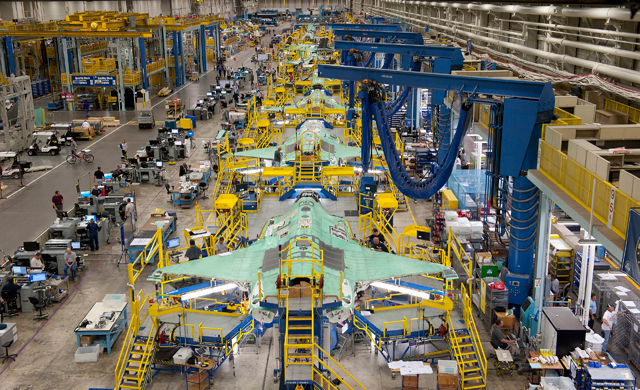
Orbis Terrarum, 26/2/2022 - The Imperial Defence Arsenal has announced the start of its production of the F-35 Lightning II multi-role fighter jet. Having worked closely with Duxburian developers of the state-of-the-art aircraft, the IDA expects the first units to enter production sometime in March. "Commencing production of a new line of military equipment is a hugely complex operation", the IDA's regional chairwoman Anke Gnoyle comments, "And it will take weeks, if not months, for the Orbis Terrarum facility to switch from production of the Eurofighter Typhoon to the F-35."
Given the novelty of the F-35 production line at the IDA's Orbis Terrarum Assembly Office, the first F-35s are not scheduled to roll off the production lines until later this year, with a possible, tentative first date of completion given as June 2022. The IDA reassured stakeholders in the Inimician Eurofighter project that the Empire will still use, produce, and continue to develop Eurofighter Typhoon jets alongside the F-35. Eurofighters make up the majority of the Imperial Air Force's fighter fleet at present, and Inimician Eurofighters have been exported to Inimicus's allies such as the Kingdom of Spain.
The addition of the F-35 to the Imperial Air Force's armoury marks a large development in its operational capacity. F-35 jets include up to ten air-to-air and air-to-surface missiles as well as state-of-the-art radar and reconnaisance equipment. The renewed focus of the Imperial Defence Office on electronic and cyberwarfare capabilities appears to have been a factor in the decision to produce the new jets, as F-35s include short-range cyberwarfare and signals intelligence equipment.
-

Defenestrated Commander Rosenfield Vows Revenge
Diessenar Terror Suspect Named, Denies Allegations with Imperial Support
Was Diessen's Manhunt for Suspect a Ploy for Mueller's Autocracy?

Commander of the Imperial Guard Investigation Unit and Special Envoy to North Diessen Albert Rosenfield made a public statement vowing "absolute and remorseless revenge" against the perpetrators of the attack against him. The statement, apparently released from somewhere inside the North Diessenar capital of Het Goor - where Rosenfield is understood to be recuperating - further suggests the attackers were individuals with official capacity in the Diessenar government: "President Mueller knows the scoundrels who attempted to kill me", Rosenfield alleges. He further claims the attack happened "Not two metres from President Mueller's desk", which appears to corroborate reports that the defenestration occurred near to, or even from the window of, the Diessenar Presidential Office.
It is unclear to what extent Rosenfield's statement was made in his official capacity as Special Envoy. "It is uncommon at best for Imperial officials to take such a personal, vengeful stance", comments Imperial Councillor Dilkes Ayla, "And if Rosenfield was given permission by His Imperial Majesty for this rant -- which I could not imagine he was -- that constitutes a grave breach of political responsibility.
The contents of Rosenfield's revenge are as yet unclear. In his statement, however, the Commander mentions "opening the Pandora's box of the North Diessenar state" and "informing the region and the world of what goes on behind the screens". No independently verifiable sources have reported corruption or oppression within the Confederal Government of North Diessen, however. Dilkes Ayla IC comments: "We shall see what Rosenfield comes up with. If it is anything of substance, and anything supported by evidence, we will take appropriate steps, especially if our involvement with the suppression of the Reuland rebellion late last year is somehow related to this."
The Imperial Palace has been approached for comment.

The terror suspect at the heart of the current diplomatic tensions between North Diessen and the Empire of Inimicus has come forward and named himself as Nestor Karaman, up until recently employed as a journalist for Diessenar newspaper the Hilverbode. In a press release from the Imperial Palace, where the Emperor has temporarily housed Karaman, the refugee journalist said he had been "accused of the most heinous crimes imaginable" but is convinced he is "innocent on every single charge." He further accused North Diessen authorities of a manhunt against "everything that is free press in the country."
The Imperial Palace confirmed Karaman had been given temporary housing inside the Imperial Palace, a privilege usually awarded only to high-ranking political refugees and personal friends and family of His Imperial Majesty. Imperial Consul Simge Galanth, who has assumed leadership of the Inimican response to Karaman's situation, declared Karaman "was an honoured guest of His Imperial Majesty for the time being, owing to his status as the centre of a large political development at present and the concerns we have for his safety."
Sources at the Imperial Guard suggest North Diessen's government have been attempting to bring Karaman back to their jurisdiction, including an attempted kidnapping during Karaman's journey from a temporary detention centre in Inimicus's northwest to the capital. This kidnapping appears to have been foiled by the Imperial Guard before it could materialise. Consul Galanth called this attempt "an utter disgrace", and called upon Ekrem Mueller's government to "resolve our differences at the negotiating table rather than the battlefield."
Rumours from inside the Imperial Palace suggests Karaman and the Emperor have struck up an immediate friendship. One source comments the two "spend most time either one has free in each other's company". His Imperial Majesty has taken a keen interest in North Diessenar affairs ever since His attempted assassination in Summer 2020, leading to Inimician intervention in the Reuland Rebellion last year.
In related news, accusations of corruption and usurpation from Inimician politicians against North Diessen's President Ekrem Mueller have surged today, following Nestor Karaman's revelations. Imperial Councillor Basil Lawson, who specialises in defence matters and has previously received the Imperial Prerogative on defence matters, stated in the Council today: "All signs point to a violent takeover by Ekrem Mueller late last year, as a result of the Reuland Rebellion." Other accusations come from Emperor's Commissioner Sven Kockelman, who demands Mueller "come clean, and come clean for real this time."
-

Emperor Artabanos Buys Drone Models for Inimician Children after Fleet Inspection
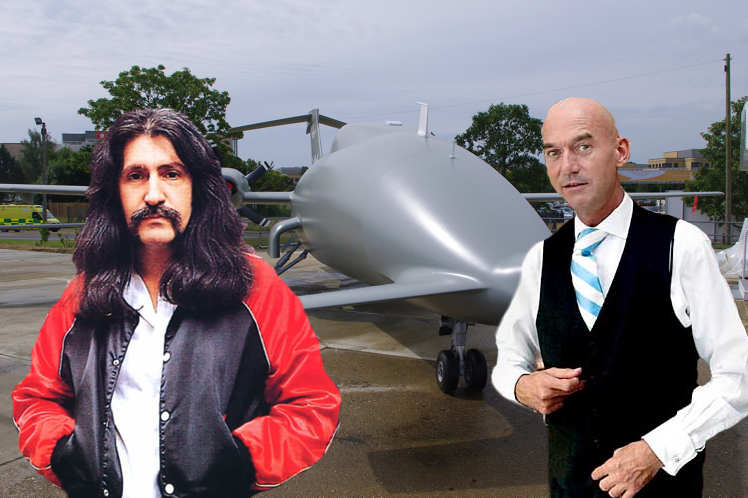

Above: His Imperial Majesty Emperor Artabanos (right) and Drone Commissioner Mancov at the National Drone Show; Below: one of the one million drone models the Emperor pledged to donate to children in need
Undisclosed top-notch armaments, extensive electronic warfare capacity, fittings for tactical nuclear warheads, and deployment within mere hours anywhere in the region. The promises of Imperial Drone Commissioner and disgraced former Defence Officer Boris Mancov were extensive, yet at today's National Drone Show in Portus Inimici, these promises became real. Unveiling the revamped P.1HH reconnaisance vehicle and the brand new P.2HH attack drones, Commissioner Mancov pledged these craft "usher in a brand new era of warfare", and assured His Imperial Majesty that "whenever and wherever You see fit, a full deployment of the Empire's might is merely hours away, guided from the comforts of the Imperial Palace."
Mancov also used his 20-minute address, which followed a two-hour display of the new UAVs' capabilities in front of a huge crowd, to announce further developments in what he terms the nation's "New Generation Strike Force", including a renewed policy of two Imperial Navy Fleets being at sea at any given moment, making use of intensified relations with Inimicus's allies for supply and rearmament. The conversion of several of the Navy's light aircraft carriers to so-called "Drone Carriers" is also thought to be completed. These ships have further been retrofitted with "the latest and best" electronic warfare systems, claimed Mancov.
New Generation UAVs and electronic warfare capacities are currently being spread far and wide to Imperial Navy ships, Imperial Air Force detachments, and Imperial Army units around the region. "The sheer omnipresence of the New Generation Strike Force makes it a force to be reckoned with", said His Imperial Majesty Emperor Artabanos at the drone show, "That, and the fact they can carry nukes. Everyone loves a good nuke." UAVs are also reported to be in transit to the recently opened Imperial Armed Forces base in Istkalen, although, as per treaty agreement, no nuclear armaments are set to be transferred there.
Emperor Artabanos further pledged to donate one million airfix models of the P.1HH to "children's hospices and young people's homes around My Empire", with the broad aim of "educating and inspiring the new generation about the New Generation." When asked whether part of the ƒ2bn fund used for development of the new drones would be used for this donation, the Emperor replied: "Can't an Emperor buy a gift for His children? Besides, doing model aircraft is my second favourite activity, besides doing -- actually, er, there are children around, aren't there. Nevermind."
In line with today's announcements, the 2nd and 3rd Fleets of the Imperial Navy set sail from Portus Inimici today, reportedly carrying up to 125 P.2HHs and an undisclosed number of P.1HH units. It is unknown whether nuclear armaments are also being carried. The two fleets have been ordered to patrol, combat piracy and illicit smuggling, and to provide logistics and humanitarian assistance wherever necessary.
-


Artabanos's Answers, May 2022:
Nuntius Inimici's Primary Palace News
Are the Commons Elections Even Happening?
His Imperial Majesty Emperor Artabanos has yet to confirm whether elections for the House of Commons will take place this month, as is customary. Inimicus's lower house of the Imperial Diet sits every June for one month, and is usually called together by an Imperial Decree issuing powers to hold elections. Last year's Commons, however, saw widespread dissatisfaction among the Inimician public with proceedings in the House, leading the Emperor to threaten to re-arrange the current Commons arrangements if behaviour did not improve. The Constitution of the Empire of Inimicus mandates the Commons are to sit for one month every year; this implies the Emperor has until the end of this calendar year to either call an election, or amend the Constitution.
Did Strathclyde just confirm an Inimician nuclear triad?
During his weekly press session, Imperial Consul Christopher Strathclyde appears to have semi-accidentally betrayed part of Inimicus's nuclear arms strategy. A Nuntius Inimici reporter queried the Consul on the recent announcement that two of three Imperial Navy fleets are to be at sea permanently from now on, and will carry several advanced electronic and unmanned weaponry systems. Consul Strathclyde suggested that Imperial Air Force and Navy unmanned aerial vehicles (UAVs) may indeed be armed with components of the Inimician nuclear stockpile: "The Imperial Armed Forces' new P.2HH design carries a larger payload of up to 700kg, or 1500lbs. Although the specifications of the Imperial Nuclear Arsenal remain undisclosed under the Imperial Secrets Act, you will know most Inimician nuclear weapons weigh between 500 and 1000kg. Our lighter weapons are therefore suitable for this type of deployment, whereas ---"
The Palace refused to outright confirm or deny whether drones carrying nuclear weaponry are currently airborne or deployed with the Imperial Navy, however, further questioning caused the Consul to state: "Of course, for our heaviest warheads we still rely on our intercontinental missiles and bombers."
The existence of three branches of Inimicus's nuclear deterrence has never been confirmed: the Palace has always been deliberately mute when discussing the Empire's nuclear armament. However, with a land-based component in the form of ICBMs and mobile launchers, a sea-based component with carrier-mounted drones, and an airborne component using the Imperial Air Force, such a triad of nuclear capacity now seems all but confirmed.
What's going on with the Emperor and the Diessenar President?
Exchanges of more-than-political compliments, arrangements for weekly joint visits and inspections of Canal works, and immediate state visits just days after taking office: the relationship between His Imperial Majesty Emperor Artabanos and newly elected Confederal President Ekrem Karaman of North Diessen appear already in high spirits. Rumours that the Artabanos Foundation part-funded Karaman's campaign only add to the suspicion that the two statesmen have an immensely friendly standing.
The Emperor-President duo today released details of arrangements for joint inspection of the Artabanos Canal works and a "business lunch" to take place on a weekly basis, at least "until such time as Canal works are complete". Mueller and Artabanos are also scheduled to appear at the Imperial Palace on Friday, during Mueller's first formal state visit since becoming President. While foreign dignitaries are generally housed in nearby state-sponsored hotels during state visits (if they stay overnight at all), Palace sources confirm Mueller and his entourage have been afforded one of the greatest honours the Emperor may bestow on guests: a stay in His Palace.
-

Shortest House of Commons Campaign in Living Memory Kicks Off

Inimician Liberal Appeal leader Michael Dowding campaigns in Lacerta
Empire-wide, 12th May 2022 -- With His Imperial Majesty's Decree calling for House of Commons elections on May 15th, Inimician political parties have been scrambling to arrange campaign materials and rallies in the three days remaining before ballot day. Emperor's Movement leader and former European Councillor Hetty Tilki was seen leafleting in Telum, while the Inimician Liberal Appeal's Michael Dowding was seen at makeshift rallies in Lacerta, the Centre-Conservative Union's Henman Vern spoke to grassroots supporters in Terra Domini, and the Central Progressive Party and United Green Front came together in Portus Inimici to announce a formal electoral alliance.
The four-day campaign window is the shortest in living memory, with only the 1802 Parliamentary election being scheduled with less notice. At that time, the new Republican government called for elections to occur the very next day -- however, the electorate at the time was decidedly smaller. His Imperial Majesty justified the brief time window for campaigning in a press statement this morning, in which He declared "all evidence and all polling shows Inimicians are tired of the House of Commons and everything that comes with it." Indeed, early reports suggest Sunday's turn-out could be as low as 30-40%, which would make this year's ballot the least well-attended in Inimician history.
Dissatisfaction with the House of Commons has a long tradition in Inimicus. The original, pre-2014 House sat permanently as Inimicus's most important legislative body. Following mass corruption and expenses scandals, Emperor Artabanos dissolved the Commons indefinitely upon His accession. The House now sits every year in June and has still been riddled with scandal every session. Last year, People's Movement leader Adolf Danube attempted to prescribe Inimicus's national votes for European Commission, resulting in His Imperial Majesty having to step in to work out a compromise. Public support for the Commons has consequently dropped from over 68% in 2018 to well under 50% now.
Polling suggests a large lead for Tilki's Emperor's Finest, whose main policy appears to be the abolition of the Parliamentary system in the first place. The Finest are followed closely by traditiona arch-enemies the Inimician Liberal Appeal and the Centre-Conservative Union. The People's Movement, whose platform centers around opposition to the Imperial system of succession and the immediate impeachment of His Imperial Majesty, trail in fourth place, at around the same level of support as the new Progessive-Green alliance led by veteran politician and convicted would-be assassin Jeff Speller.
-

Emperor's Finest Storm Commons Again as Turnout Reaches Historic Low --//-- Emperor Artabanos Proposes Merger of Crown Court and Imperial Council

Finest Leader Hetty Tilki speaks to Good Morning Inimicus following her election win
Telum 19th May 2022 -- The Imperial Electoral Commission this morning certified the full results of the 2022 House of Commons election, held last Sunday. The Emperor's Finest movement achieved a slim working majority in the 2022 Parliament, holding 382 out of 750 seats. These gains appear to have mostly resulted from a collapse in the United Progressive vote (the joint electoral alliance between the United Green Front and Central Progressive Party), whose share fell by over 40% compared to 2021.
The Inimician Liberals and Centre-Conservatives report modest losses compared to 2021, at the expense of the Finest and, perhaps especially, the People's Movement, who were the only other party to gain seats, winning 104 this Parliament compared to 90 last year. People's Movement support expanded from its traditional base in Terra Quaestoris to the outskirts of larger cities such as Lacerta and Portus Inimici, while support for the Finest was strongest in and around Terra Praestoris and the Telum Capital District.
Turnout for the 2022 Commons election fell by more than 35% compared to last year, when the proportion of voters who showed up was already considered low at 68%. The Imperial Electoral Commission counted a total turnout of 33%, the lowest ever recorded in Inimician history. Emperor's Finest leader Hetty Tilki, who spoke to Good Morning Inimicus this morning, was therefore cautious to celebrate her party's victory, calling the results "a strong slap in the face for the parliamentary system." Her movement was the only party that ran on an outspoken anti-Commons platform, and suggested their MPs would use their powers in an attempt to dissolve the Commons as soon as possible. With a Finest majority gathering in Telum this June, that prospect is becoming more likely.
Nevertheless, as Tilki commented, "abolition of a body of the Imperial Diet requires a constitutional amendment", which the Commons does not have the power to enact. Only the National Imperial Council, at the prompting of one of its Acts or an Imperial Decree, could formally abolish the Commons. Next month will no doubt show how Tilki and the Finest will attempt to fulfill their programme.
Party 2021 Parliament 2022 Parliament Change United Progressive Front 64 (as UFG/CPP) 37 (4.9%) -42% Inimician Liberal Appeal 143 125 (16.7%) -12% Centre-Conservative Union 102 97 (12.9%) -5% Emperor's Finest 292 382 (50.9%) +31% People's Movement 90 104 (13.9%) +16% Independents 9 5 (0.7%) -44%

In related constitutional news, His Imperial Majesty proposed a formal motion in the National Imperial Council yesterday afternoon to merge the functions of the Imperial Crown Court with those of the Council. Justifying what He called a "necessary streamlining" of the judicial process, His Imperial Majesty commented "this place, the true representation of the Inimician Peoples, should have the final say in determining the guilt of our most notorious criminals."
The Imperial Crown Court is the Empire's highest judicial authority in both civil and criminal cases. The Emperor traditionally presides over sittings, as He did when convicted traitors Maximillian and Augustus Barrington were sentenced to life inprisonment last year. Constitutional scholars appear ambivalent about the proposed changes, with one commenting the Court "is already an institution presided by His Imperial Majesty", and that therefore, transferring the Court's powers to the NIC would imply "virtually zero practical changes".
A two-thirds majority of NIC votes must now be cast in favour of the Emperor's proposal, which would enact a constitutional amendment adding judicial functions to the Article XLIII list of NIC duties. Given that the Emperor commands 15 of the 35 NIC votes, it is expected this proposal will succeed relatively rapidly.
-

Defenestrated and Renegade Imperial Guard Commander Rosenfield Barges into House of Commons, Presents Former Diessenar President Mueller in Chains


Albert Rosenfield (left) and Ekrem Mueller
Telum, 1st June 2022 -- The Opening Session to the Tenth Parliament of Inimicus was almost immediately disrupted this morning as long lost Imperial Guard Investigation Unit Commander Albert Rosenfield, who was infamously defenestrated in North Diessen earlier this year, appeared on the House of Commons floor, escorted by the battered former Diessenar President Ekrem Mueller. Having apparently convinced Parliamentary security officials of the need of his affair, Rosenfield declared "I got him", to wild spectacle among MPs. His Imperial Majesty, traditionally present at the Opening Session, was instantly approached by several of His Guardsmen for an immediate security exfiltration, but He refused to leave the Chamber, seeing Rosenfield as no threat at all.
The Investigation Unit Commander, who went missing after the fateful end to his post as Imperial Special Envoy to North Diessen which saw him thrown out of an office window by Mueller and his staff, appears to have hunted for Mueller for several months, before finally capturing him near the border of Terra Quaestoris. Rosenfield declared: "Your Imperial Majesty, here he is. Do with him as You like." Following this brief yet powerful statement, Members of Parliament approached Rosenfield, congratulating him on his efforts. However, People's Movement MPs remained quiet throughout, and Judy Speller, Progressive Front leader and daughter of convicted would-be green soap assassin Jeff Speller, was seen gazing around in confusion.
Deputy Speaker Birch eventually called the House to order, but was interrupted by His Imperial Majesty, who commended Rosenfield's "utter and complete devotion to the Imperial cause." The Emperor addressed Mueller, claiming the former Diessenar President was "a war ciminal, a usurper of the most base sort imaginable, and now rightfully in the hands of the law." Cheers from Emperor's Finest MPs, who now make up the majority of the Commons, escorted Mueller and Rosenfield from the Chamber, where the latter was handed over to law enforcement.
Reports from Telum Parliamentary Constabulary suggest Mueller has been formally arrested on grounds of "aiding the enemies of the Emperor, intentionally defrauding the Emperor, conspiracy to commit murder, attempted murder of an Imperial Official, obstructing the Emperor's Armed Forces, and conspiracy to inflict harm on, or otherwise impair, operations of the Emperor's Armed Forces". It is yet unclear whether Mueller will be extradited to North Diessen, as a formal extradition treaty is not yet in place between the Confederacy and Empire. Imperial Councillor Basil Lawson, whose experience in international judicial affairs has been the cornerstone of the Emperor's policies for years, commented "Given the extremely close relationship between His Imperial Majesty and the new Confederal President of North Diessen Nestor Karaman, I am in no doubt that a sensible agreement shall be decided upon in no time at all."
-

House of Commons Dissolves Itself Indefinitely as Constitutional Amendments Pass --// -- Commander Rosenfeld Declared Hero of the Empire --//-- Ex-Diessenar President Mueller To Be Tried in Inimicus

The House of Commons in its final sitting - possibly for years - on June 30th 2022
Telum, 30th June 2022 -- With the ratification of a Constitutional Amendment scrapping provisions for the House of Commons to be called together each year, Members of Parliament effectively ended the 221-year custom of large groups of popular representatives coming together in Telum. MPs voted by 602 to 148 to change the wording of Article 34.2 of the Inimician Constitution, which dictates how frequently the Commons shall meet, from "The Lower House shall meet every year" to "The Lower House shall meet as requested by Imperial Decree or Act of National Imperial Council." Article 40 further required minor changes in wording.
People's Movement MPs, who generally oppose the Imperial system of succession and governance, were the only parliamentary group to oppose the amendment; Movement leader and convicted terrorist Adolf Danube, whose position as MP after his conviction is currently under investigation by the Crown Court, called the process of Constitutional Amendment by the Commons "extra-constitutional in and of itself", referring to some legal opinions suggesting the House of Commons does not have the prerogative to amend the Constitution.
Indeed, the amendment, proposed by Emperor's Finest leader Hetty Tilki, former Inimician Councillor to the EU, must still be agreed upon by a majority of the National Imperial Council, which is expected to occur later this month. The Council has been drafting other Constitutional Amendments in tandem with His Imperial Majesty the Emperor, and is anticipated to vote on a whole package of amendments, including this Commons change, in due course.
Following the passage of the Amendment, Hetty Tilki called for the immediate ending of this year's Commons session, which was ultimately granted by Deputy Speaker Matthew Birch. A formal dissolution Decree was later issued by the Imperial Palace.
Campaigners and public opinion have largely turned against the House of Commons as an instrument for the last several years, following a series of scandals and events which led to widespread condemnation in the Inimician press. National-level institutions (barring, naturally, the office of Emperor) are generally viewed with distrust by the electorate -- turnout for elections to the Commons and National Imperial Council is generally under 60%, while no less than 80% of voters tend to turn up for Provincial Assembly elections.
The National Imperial Council, which is widely seen as the national-level institution most important for the functioning of government, is still partly elected by popular vote (although suggestions the Council is intending to allow Provincial Assemblies to delegate members to the Council are currently making the rounds). This Council, then, is seen by most Inimicians as their voice in national politics. Given that most governmental duties with which Inimicians interact on a day to day basis are rooted in the Provincial level, even the National Imperial Council is not seen as a body as critical to people's lives as Provincial Assemblies are.

Commander of the Imperial Guard Investigation Unit Albert Rosenfield, who spectacularly returned to Inimicus from his assignment in North Diessen by presenting MPs with the captured war criminal and former Diessenar President Ekrem Mueller, was awarded the highest civilian honour in Inimicus at a ceremony this afternoon. His Imperial Majesty Emperor Artabanos declared Rosenfield a Hero of the Empire, and said his bravery "was, is, and shall forever remain an inspiration to every Inimician." Speaking after the decoration, the Emperor further announced Rosenfield "will spearhead new developments inside the Imperial Guard, including experiments with drone technology to capture and eliminate our most wanted criminals, and equipping this remote technology with electronic means."
Rosenfield, who vowed "absolute and remoseless revenge" against Ekrem Mueller after the latter apparently defenestrated him from the Diessenar presidental compound in March 2022, captured the former Diessenar leader sometime this month and barged into a session of the House of Commons with Mueller in cuffs. Mueller, whose conduct during last year' Reuland Rebellion is the subject of accusations of war crimes and crimes against the Emperor and Imperial Peoples, is to face trial in Inimicus rather than North Diessen. According to rumours from the Imperial Palace corridors, an informal agreement between Confederal President Nestor Karaman and Emperor Artabanos was struck, in which the Emperor assured His northern counterpart that Mueller would face "at least one life behind bars."
Nevertheless, some in North Diessen have accused the Inimician government of "stealing" their former President. Chair of the Diessenar Grand National Assembly Maaike Wollum called for an immediate meeting with Imperial officials, who she described as "neo-colonialist interferors". The Imperial Government subsequently released a statement detailing the amount of combat personnel from the rebellious Diessenar State of Reuland which the Imperial Armed Forces had eliminated over the last year, and accused Wollum of "intense and insulting ingratitude towards His Imperial Majesty."
No comments from Nestor Karaman have reached Nuntius Inimici thus far. Mueller's trial at the Imperial Crown Court is scheduled to commence in August at the earliest.
-

Drone Commissioner Mancov Announces 5,000 UAV Mark Reached as Navy Receives Investment --//-- Constitutional Amendment Will Include Council Membership Changes
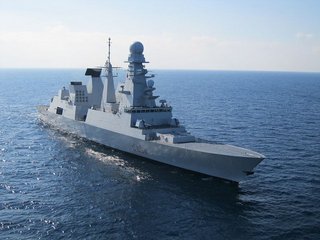
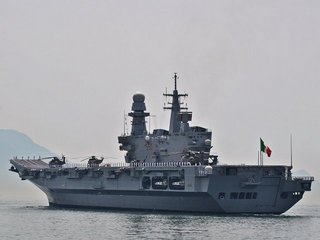
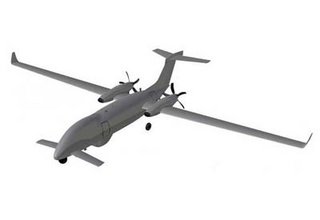
From left to right: a Penne Class cruiser in the Persian Gulf; HIMS Devour (lead ship of the Devour Class of aircraft carriers) on maneuvers; model of a P.2HH Hammerhead attack drone
Portus Inimici, July 4th 2022 -- In what he termed the completion of "our transition into a new era", Imperial Drone Commissioner Boris Mancov announced the Imperial Navy, Air Force, and Army now field more than 5,000 unmanned aerial vehicles, or UAVs. The benchmark was reached by the introduction of the Fifth Aerial Strike Group, which will join the Adiuzo Praestoris Northern Command, in close proximity to the Imperial frontier with North Diessen and the newly opened Artabanos Canal.
Mancov has overseen the evolution of the Imperial Drone Fleet from a mere fifty airframes to its thousands-strong capability over the last months and years. UAVs are seen in the corridors of the Imperial Defence Council as a cost-effective yet highly efficient way of pressing Imperial interests abroad, without endangering Inimician lives. In addition to investments in drones, Imperial Defence Officer James Cocx also announced today the laying down of four new aircraft carriers (two Artabanos Class supercarriers with a 60-airframe capacity, and one each of the lighter Devour and Guiseppe Classes), with the aim of "developing the capacity to deploy the Imperial Drone Fleet anywhere in the world."
Past announcements by the Defence Office declared large parts of the Drone Fleet are to be at sea constantly, carried by one of two permanently out-of-port Imperial Navy fleets, and that these fleets are to include specialised UAV carriers and extensive electronic warfare capability. Rumours in the defence community suggest drones may even be armed with nuclear warheads.
In other news, the Imperial Palace confirmed today that the proposed series of Constitutional Amendments to be debated and voted on by the National Imperial Council in coming weeks will include proposals to change how the Council is constituted. Currently, voters in each Terra, or Province, directly elect two Councillors for an indefinite term, with the Emperor expected to call NIC elections in a timely fashion (the last such electon was held in 2015).
Under proposals filed by Lord Christopher Strathclyde, Imperial Consul and Executive Representative Leader, Provincial Assemblies will be able to vote for their provincial NIC members, rather than the electorate directly. Each Terra is to set its own rules regarding NIC elections, which may include this new type of indirect ballot.
United Green Front Imperial Councillor and convicted would-be green soap assassin Jeff Speller IC called the proposed changes "yet another democratic outrage." Taking away the right of the Inimician Peoples to vote for NIC directly, Speller argues, "only grows the huge dissatisfaction we have with national-level politics." A Nuntius Inimici poll this week found that 86% of Inimicians are content or very content with the state of national politics today.
Proponents of the change, which include Vicarius Wilfred Cocx (an appointed NIC member), suggest it is Provincial-level politics which engage people more so than national-level issues, as evidenced by the highest electoral turnouts being found during Provincial Elections, called every four years.
The amendment, and others, are due to appear on the NIC floor within the next few weeks.
-

Council to Lose Powers of Deposition --//-- Imperial Consul Galanth Shamed by Palace as Czech Bots Take Over Inimician Internet

Telum, 23rd July 2022 -- Constitutional amendments being prepared by the Imperial Palace will take away the power of the National Imperial Council to impeach the Emperor. Sources from the Council corridors suggest Article XXV, which stipulates that a double supermajority of the Council may remove the Emperor from office in co-operation with a unanimously-approving National Executive, is to be scrapped in a series of wide-ranging changes to be put to Councillors in the coming weeks.
Critics of the proposed amendments, including United Progressive Front Councillor Jeff Speller, claim the removal of the Article infringes on the "controlling authority" of the Council. However, spokespeople from the National Executive claimed the Article "serves no real-world purpose" and exists "only theoretically".
Article XXV was used only once in the Empire's history, and never followed through. Summer 2015 saw then-Councillor Rita Fortuyn introduce an Article XXV procedure against Emperor Artabanos but this resolution never met the required two-thirds majority. No further attempts have ever been made to invoke the Article.
In other news, Imperial Consul Simge Galanth, who recently took up the post of Imperial Cybersecurity Officer, has been asked critical questions by Imperial Councillors over a wave of bot spam overflowing Inimician social media in recent days. Social media users have taken to various platforms demanding the Imperial Government takes action over floods of messages, posts, and chats, originating from bot accounts and trolls linked to Czech Slavia.
Wendy Meijer, Professor of Cyber Security at the Imperial University, told Nuntiius Inimici these bot programmes "originated domestically in the Democratic Republic", before their use and quantity increased drastically over the last few weeks and spread across the region. Meijer further considers it likely that a number of accounts is operated by "individuals paid or supported by organisations or official institutios in Czech Slavia."
Consul Galanth could not mention specific strategies the Imperial Government would take to counter the bot accounts, although she confirmed she received "a metric tonne of spam" herself. Imperial Councillor Basil Lawson demanded "an immediate elimination of any spam accounts" by the government, which would necessarily involve the Palace extending its grip into the social media domain.
-

Imperial Council Passes Major Constitutional Amendments: A Full Overview

The National Imperial Council meeting room inside the Imperial Palace
Telum, 10th August 2022 -- With a near-unanimous majority, the National Imperial Council has passed a set of Constitutional Amendments proposed by Executive Representative Leader and Imperial Consul Christopher Strathclyde, in conjunction with His Imperial Majesty Emperor Artabanos. As rumours suggested, the Council itself has lost the power to depose the Emperor by double supermajority, with Article XXIV (which set out these procedures) scrapped completely.
Another surprising and potentially inflammatory change was made to Article I (The Empire), which specifies the territories that constitute Inimicus. The phrase "The Empire of Inimicus is inextricably bound to the People and Government of the Confederacy of North Diessen" was added, reportedly to signify "the new and deep partnership" between the two nations.
Article XX (Marital Abdication) was also scrapped. This Article specified that the Emperor shall be deemed to have abdicated if He contracts a marriage without obtaining the consent of the Council. In the summer of 2015, this Article nearly led to a government crisis when Emperor Artabanos signalled His intention to marry despite opposition from the Council. Strathclyde repoted "no institution has the right to prescribe whom one should love, least of all whom the Emperor should love."
The Regency Question, which plagued government when Emperor Artabanos was incapacitated by the Needletail One crash in 2020, has also been resolved. Previously, the Council automatically became the regent, but retained the right to appoint a single person as regent if it so wished. With an amendment to Article XXVI (now XXIV; Regents) the office of Vicarius is officially designated as acting as regent. Since the Vicarius was not hitherto a constitutionally-recognised position, this office was also added to Article XXIX (now XVII; Duties and Members of the National Executive) as part of the National Executive, and to Article XXVI (now XVIII; Legislative Acts).
Given the unpopularity of the House of Commons, the already announced amendment to the regulations calling the Commons together was also followed through. While the lower house was originally mandated to meet "every year" by Article XXXIV (now XXXII; House Duration), this has now been changed to "when called by Imperial Decree", reflecting the regulations agreed upon in June this year.
The final major change is, as reported before, an amendment to the process of electing the National Imperial Council. Thus far, provincial delegates (two from each Terra) were mandated to be elected by popular vote (Article XLI, now XXXIX; The National Imperial Council). From now on, however, the text reads "Provincial delegates shall either be elected by popular vote or elected by the Provincial Assembly of the Province represented." This move is aimed to give Provincial Assemblies, who have complained about a lack of representation in the national government for years, a more direct voice in Telum.
Other minor changes include the scrapping of the phrase "telegraph" in Article X (Privacy of Communication), which Consul Strathclyde termed a "necessary modernisation" of the text. Previously, the article had specified that the privacy of the "telephone and telegraph" shall not be violated. Telegraph communications, which have not existed in Inimicus for several decades, are now no longer covered by this Article. Additionally, the controversial Article XVI (Education Regulations) now prohibits only the teaching of religious beliefs in private schools, rather than the teaching of religious and political beliefs together. Consul Strathclyde explained this change such: "With society becoming more and more connected every day, the prohibition to teach political theory while politics is all around our minors at any point in the day was archaic. We must educate our minors in the handling of political statements the verification of campaign claims."

Jeffrey Speller IC, would-be green soap assassin and the only Councillor to vote against the ratification of the Amendment package, called the proposals "yet another power grab" by the Emperor and His administration. Speller has been a vocal critic of the Emperor ever since His accession in 2014, which Speller has previously called "the greatest calamity in Inimician history".
Nevertheless, Councillors approved of the Amendment package by near-unanimous vote late last night. By Constitution, the Emperor has the right to Decree amendments which then merely need a simple NIC majority to pass. However, as a gesture of goodwill, the Emperor devolved the task of developing these Amendments to Christopher Strathclyde and the NIC itself, and Decreed the passed Amendment package into law this morning.
Public opinion, thus far, is shown to be widely in favour of the newly-enacted changes. The dismissal of the House of Commons as a permanent body was especially welcomed (79% approve, 11% disapprove, 10% don't know/don't care). The most controversial change appears to have been the amendment to elections for the NIC, with only 54% approving of giving Provincial Assemblies the power to elect NIC delegates, with 32% opposing and 16% don't know/don't care.
The newly amended Constitution of the Empire of Inimicus can be read here.
-


'No Talk With the Trigger-Happy': Palace Announces No Backing Down on Duchies & Reitzmag Sanctions
Telum, 15th January 2023 -- The Imperial Palace announced this morning "now is the wrong time" to renege on financial sanctions announced against the United Duchies and the Kingdom of Reitzmag in response to those nations' declarations of war against Svarna Surya. In a press statement this afternoon, His Imperial Majesty Emperor Artabanos further said He was "unfazed" by Duchian threats to seize His personal financial assets in the United Duchies, as well as the Artabanos Foundation's 8% share in Duchian conglomerate Roscoes.
"Not only are My personal affairs much, much smaller in stature and importance than international war", the Emperor announced, "But the value of goods already seized from Duchian citizens and companies since the announcement of sanctions last month has approached the total €143bn the Duchians are threatening to seize." The Imperial Government and the Confederal Government of North Diessen announced last month their unilateral seizure of any and all financial or economic assets held by citizens of the United Duchies, Svarna Suyra, Gadalland and Aspern, or the Kingdom of Reitzmag, under the powers prescribed by the Inimician Constitution and the Diessenar system of Presidential Decrees.
Sources tell Nuntius Inimici that offcials from the United Duchies have been especially intent on alleviating these sanctions. Before sanctions were introduced, Duchian companies were highly active in Inimicus and North Diessen, activity which now benefits only the Imperial and Confederal governments. Critics of this sanction policy, including Imperial Councillor Jeff Speller, have accused the Imperial Government of "playing with people's livelihoods over a mundane cause", and have called on the Government to negotiate with Duchian representatives.
Emperor Artabanos appeared this morning to give no heed to this advice. Asked whether the economic burdens of sanctions weigh up against their political message, He stated the sanctions will remain in place until "the Inimician Peoples can be reassured the nations around us are no longer led by reactionary, jingoistic zealots", and that "the safety of our Peoples, and the People of North Diessen, could never cost too much."
The Imperial Government further announced additional funding to be sent to companies and individuals in North Diessen who may be particularly affected by the current sanctions. "President Karaman has agreed to hand any seized vessels and goods to Imperial Authorities", the Emperor announced, "And Inimicus will, with its large coffers, support the People of North Diessen financially and politically, like We have always done."
No end date for the current sanctions package has yet been announced.